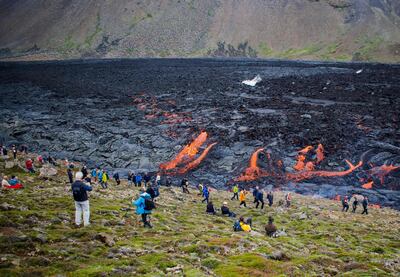From Tuesday, new EU-wide rules coming into force mean that travellers holding digital Covid-19 certificates for travel may now need to have a booster jab to travel if their previous vaccine was taken more than nine months ago.
The new rules mean that travellers who received their second dose of a Covid-19 vaccine before the beginning of May last year could have to take a booster jab before travelling around Europe.
The new measures are not compulsory, with member nations allowed to dictate their own rules for entry. However several destinations, both in and outside of the EU, are now mandating additional jabs for travellers.
As more countries announce plans to require international visitors to show proof of a booster shot for entry, the definition of fully vaccinated for travel purposes now differs depending on your destination.
Tourists planning trips need to make sure they are up to date on all new rules in their country of departure and where they are travelling to. It is important to read the fine print to understand which vaccines are accepted where and how long they are valid for.
In Abu Dhabi, residents and citizens need a booster dose of an approved Covid-19 jab if their first dose was taken more than six months ago. However, the Emirates does not dictate that foreigners visiting the country also abide by this rule.
Here are five destinations where you may need another Covid-19 jab before you visit …
1. Austria

Snow-covered forests, untouched pistes and frozen lakes await in Austria, which is less than six hours from the UAE. But travellers planning a visit need to take note of new Covid-19 rules regarding vaccinations.
Vaccine certificates were previously considered valid for 12 months by Austrian authorities, but new rules coming into play on February 1 mean that two-dose vaccinations will now only be valid for nine months from the date of the second dose.
While this does not apply to enter the country, for which validity remains 12 months, boosters will be needed to access anywhere fun, including hotels, restaurants, leisure centres, gyms, cinemas, theatres and museums.
Travellers vaccinated via the one-dose jab from Johnson & Johnson already require a booster shot after nine months for travel to Austria.
2. France

If the City of Love or Provence’s lavender fields are on your travel radar then make sure you’re up to date with your Covid-19 vaccines.
All foreigners travelling in France will need to have a booster dose of a vaccination from February 15 if four months or more have passed since the original immunisation series. This is a change from the previous rule, which recognised vaccination certificates for seven months.
The new rules don’t apply for entry, so in theory you can fly to France without a booster but you won’t be able to do much when you get there as entry to bars, cafes, tourist attractions and more will be restricted to those with a vaccine pass – and to get one of those you’ll need your booster jab if more than four months have passed since your second dose of a vaccine.
If you’re coming from the UAE – a country that is currently green-listed for travel by France – you’ll also need a negative PCR result from a test taken no more than 48 hours before your flight, although children under 12 are exempt from this requirement.
3. Israel

Israel has had some of the strictest Covid-19 entry requirements since the global pandemic commenced, so it’s no surprise that the country has introduced an expiration date for vaccinations.
Travellers keen to visit the Dead Sea, Tel Aviv or Masada National Park can now do so after the nation reopened to vaccinated tourists in January. However, visitors must have had a full course of an approved Covid-19 vaccine with the second dose taken no more than 180 days before the final date that travellers will be in the country.
If it's been longer than this, then you’ll need to have a booster dose at least 14 days before you arrive in Israel to be allowed entry. Pre-departure PCR tests and on-arrival PCR checks are also in place for some travellers, so check the current regulations before you fly.
4. Iceland

Famed for its wild highlands, geothermal spas, ice-covered glaciers and unique Icelandic sense of humour, Iceland was one of the first countries to reopen to vaccinated foreigners after the onset of the Covid-19 pandemic.
The tiny Nordic nation continues to welcome overseas travellers but people planning a trip should be aware that they'll now only pass as fully vaccinated if they have completed their original vaccine series within the past nine months, unless they’ve also received a booster jab.
The new rules came into play on January 15, and slash validity of vaccines by three months from the country's previous 12-month mandate.
Most travellers visiting Iceland will also need a negative PCR test before flying there, regardless of vaccination status.
5. Switzerland

Known for its mountains, luxury timepieces, divine chocolate and alpine lakes, Switzerland is welcoming vaccinated travellers for tourism purposes. However, from February 1, the country will only count tourists as fully vaccinated if they have completed their vaccine series in the past 270 days – just under nine months.
This is a reduction from the previous rules which allowed people to enter with a vaccination taken within the past year.
The move to shorten the validity of vaccination certificates comes after the decision by the Commission of the European Union stating that they should be valid for a period of nine months at most.
Switzerland played things safe by also extending its current coronavirus measures until at least March 31. Put in place in December to try and slow the spread of the Omicron variant, the measures, which include compulsory face mask-wearing in public places and social distancing rules, were originally due to expire on January 24.






